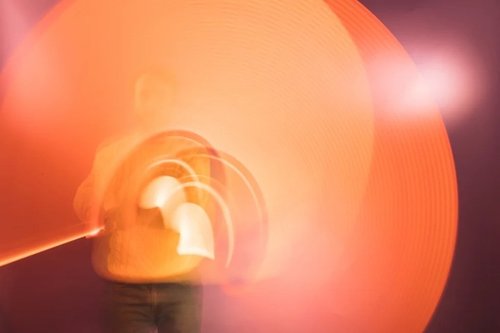What Kamala Harris’s legacy means for the future of female leadership
06 nov. 2024
4min


Journalist and editor
The people have spoken—America has chosen not to elect its first female president. The last century has marked an era of immense change and hardwon milestones as women earned the rights of suffrage, divorce, financial independence, and bodily autonomy, but still the Oval Office is yet to be occupied by a woman.
From the Cult of Domesticity to the White House, it’s a long leap to make in a few generations, and Harris’s candidacy marks a tremendous next step in a powerful and lasting legacy of inspiring women. While she may not have triumphed this week, her career sets a precedence for the future of female leadership around the world.
A legacy of firsts
While she may not become our first female president, Harris still has a lifetime full of firsts. Her decades-long career took off in 1990 when she became deputy district attorney in Oakland, California, where she made a name for herself prosecuting violence against women. After rising through the ranks to attorney general in 2010, she won her 2016 senate race, becoming the second Black woman senator.
As President of the Senate, she presided over the confirmation of Justice Ketanji Brown Jackson, the first Black woman to be appointed to the United States Supreme Court. When speaking at the confirmation, Harris stated that “the road toward our more perfect union is not always straight, and it is not always smooth. But sometimes it leads to a day like today—a day that reminds us what is possible when progress is made and that the journey will always be worth it.”
After campaigning on issues like criminal justice and immigration reform, she was nominated and subsequently elected to serve as Vice President to Joe Biden, another historic first. Her 2020 acceptance speech highlights the weight of the legacy she represents and the future her accomplishments pave the way for, paying homage to “the generations of women, Black women—Asian, white, Latina, Native American women who surround our nation—who throughout our nation’s history have paved the way for this moment tonight. Women who fought and sacrificed so much for equality and liberty and justice for all.”
Her words seemed to answer a call to action from more than 150 years ago, from the first woman to run for president. In 1870, stockbroker and women’s rights advocate Victoria Woodhall announced her candidacy for president as a response to the lack of female representation in government, her reasoning being that “If Congress refuse to listen and to grant what women ask, there is but one course left to pursue. What is there left for women to do but to become the mothers of the future government?”
Overcoming familiar obstacles
While Harris’s experience and commitment to public service places her among the most qualified presidential candidates in history, her campaign was bombarded with obstacles that women and people of color face in the workplace on a daily basis.
Like many women in leadership positions, her accomplishments were dismissed and attributed to false narratives claiming that she had used her romantic relationships with men to advance her career (regardless of the fact that every position of power she has held was popularly elected), perpetuating the misogynistic myth that successful women have succeeded via nefarious purposes, or at the hands of men.
One of the most widespread and furtive microaggressions that has plagued Harris’s career is the intentional mispronunciation of her name. For nearly a decade, Harris has been insisting on the correct pronunciation of her name, a dignity that most politicians take for granted. While seemingly innocuous, this constant “mistake” is actually a racist dog whistle and microaggression that many non-white professionals encounter throughout their careers.
While it can be an honest mistake to mispronounce someone’s name, it becomes sinister when people fail to correct it—or worse, insist on it, like CNN panelist Nancy Mace did, stating that she could “say Kamala’s name any way that I want to,” after being continuously corrected. Her co-panelist, Michael Eric Dyson, aptly expressed the fact that “when you disrespect Kamala Harris by saying you will call her whatever you want…that’s the history and legacy of white disregard for the humanity of Black people.”
While the political arena can feel like another world, it’s important to remember it is a workplace, and the racist and misogynistic challenges that Harris faces on a grand scale are emblematic of the daily realities of many American workers. According to Deloitte’s 2024 Women @ Work survey, four in 10 women experience microaggressions, harassment, or both in the workplace. For Black workers experiencing microaggressions, that rises to over 80%.
Where does female leadership stand?
Harris isn’t the only politician aiming to break the glass ceiling this year. In September, Mexico also elected its first female president, Claudia Sheinbaum, who declared that “It is time for women…Women have arrived to shape the destiny of our beautiful nation.”
Despite their successes, equal representation has yet to be attained. Of the 100 members of the Senate, only 25 are women, and of those senators, 22 are white. These numbers seem surprising as women make up more than 50% of the US population.
On a global scale, when looking at the United Nations, nearly one-third of member nations have never elected a woman to lead, and more than two-thirds of current female leaders are their country’s first.
When asked for their views on women in political office, only 53% of Americans felt that there should be more women in politics, with 11% of men reporting that there are already too many. In fact, the number of Americans who want to see more women in office has actually decreased since a similar report was published six years ago.
What’s next for working women?
Things only become less equitable when expanding from politics to the working world at large, with only about 10% of Fortune 500 companies being led by a woman. Although countless studies have found that women in leadership positions constantly outperform their male counterparts, 45% of workers still believe the sexist dogma that women make decisions based on emotion, while men use logic.
Interestingly, the underrepresentation of women doesn’t exist at all levels but instead creates a funneled effect as seniority increases—nearly 50% of entry-level roles are filled by women, shrinking to less than 40% for managerial and senior roles and less than 30% at the executive level. However, a shift is still taking place, as the percentage of women in executive roles has nearly doubled since the same survey was conducted in 2015.
While women in the workplace still have ground to cover in the fight for equality, progress is happening. Harris’s campaign and tenure as Vice President remain a step in the direction of a future in which women not only have a seat at the table—but sit at the head of it.
Photo: Rawpixel for Welcome to the Jungle
Follow Welcome to the Jungle on Facebook, LinkedIn, and Instagram and subscribe to our newsletter to get our latest articles every week!

Inspirez-vous davantage sur : Inclusion : minorités et féminisme

Sh*t’s broken—Here’s how we fix work for good
Built by and for a narrow few, our workplace systems are in need of a revolution.
23 déc. 2024

Leadership skills: Showing confidence at work without being labeled as arrogant
While confidence is crucial, women are frequently criticized for it, often being labeled as arrogant when they display assertiveness.
22 oct. 2024

Pathways to success: Career resources for Indigenous job hunters
Your culture is your strength! Learn how to leverage your identity to stand out in the job market, while also building a career
14 oct. 2024

Age does matter, at work and in the White House
What we've learned from the 2024 presidential elections about aging at work.
09 sept. 2024

Crafting your personal brand during a name change
A name change can redefine your personal brand. So, how can you leverage your online presence?
04 sept. 2024
La newsletter qui fait le taf
Envie de ne louper aucun de nos articles ? Une fois par semaine, des histoires, des jobs et des conseils dans votre boite mail.

Vous êtes à la recherche d’une nouvelle opportunité ?
Plus de 200 000 candidats ont trouvé un emploi sur Welcome to the Jungle.
Explorer les jobs